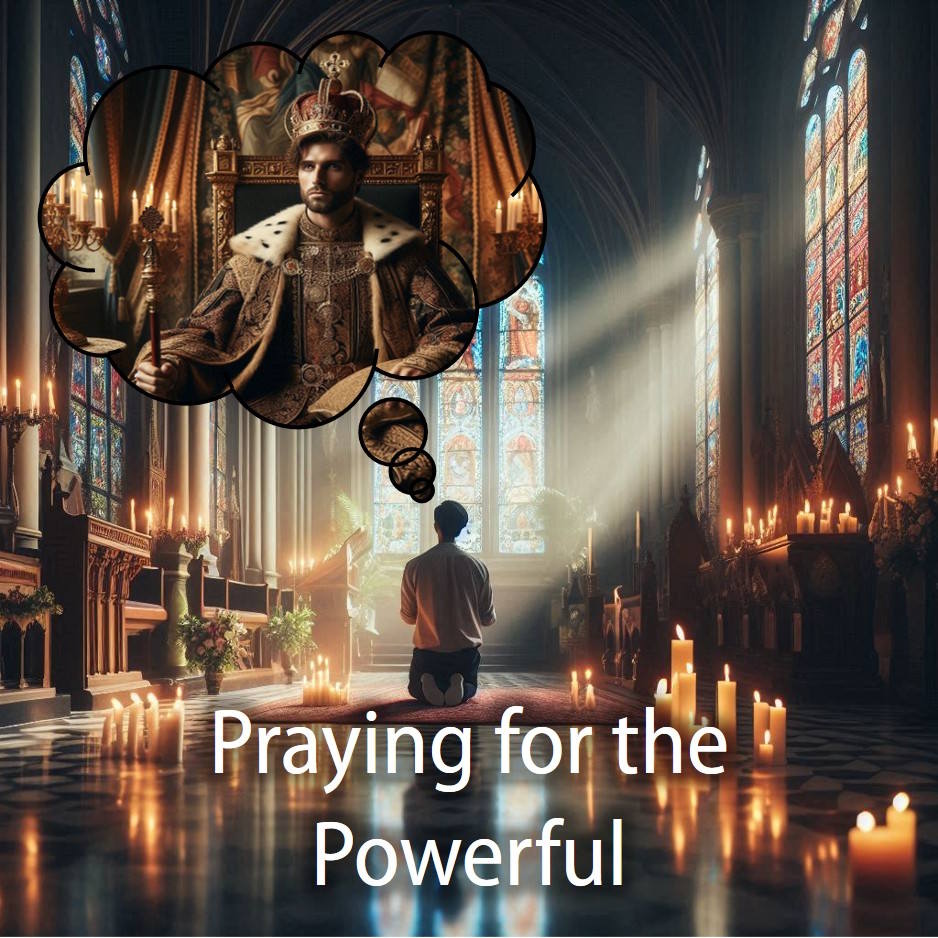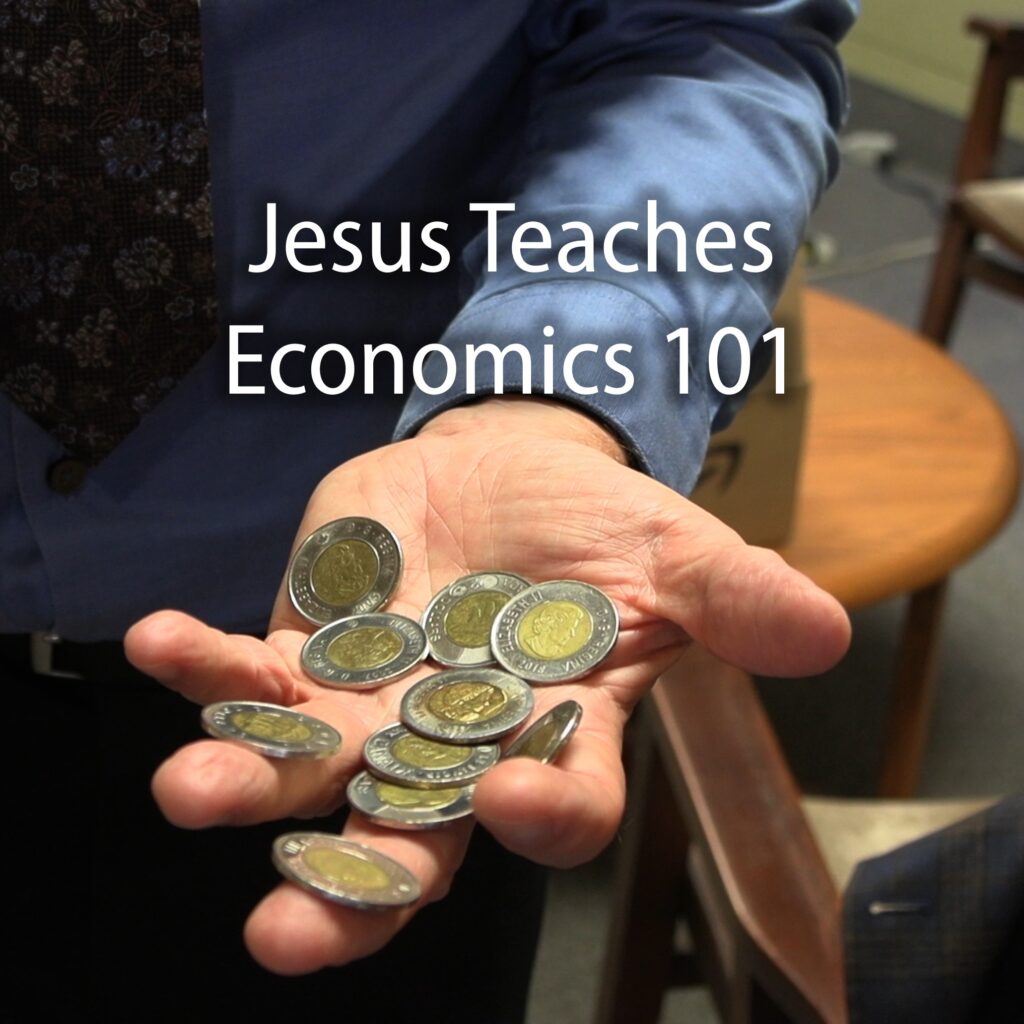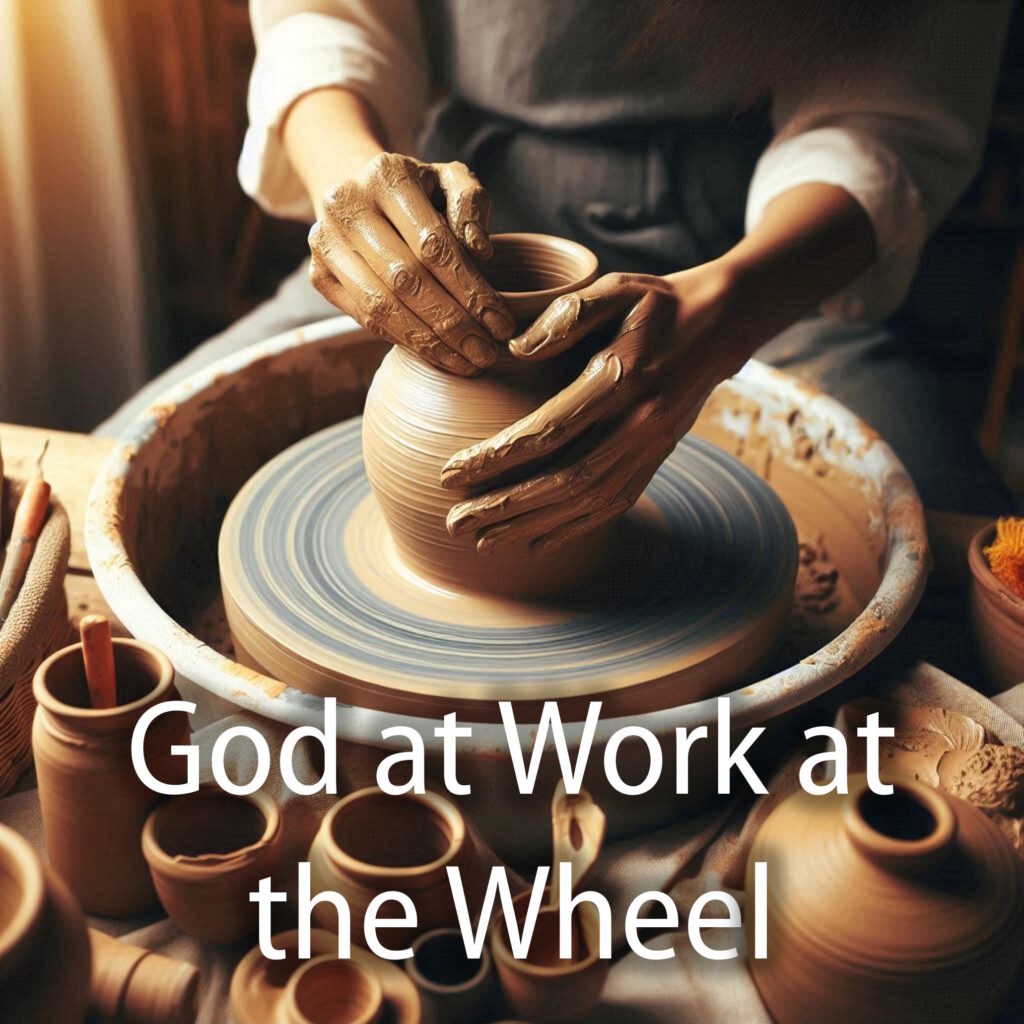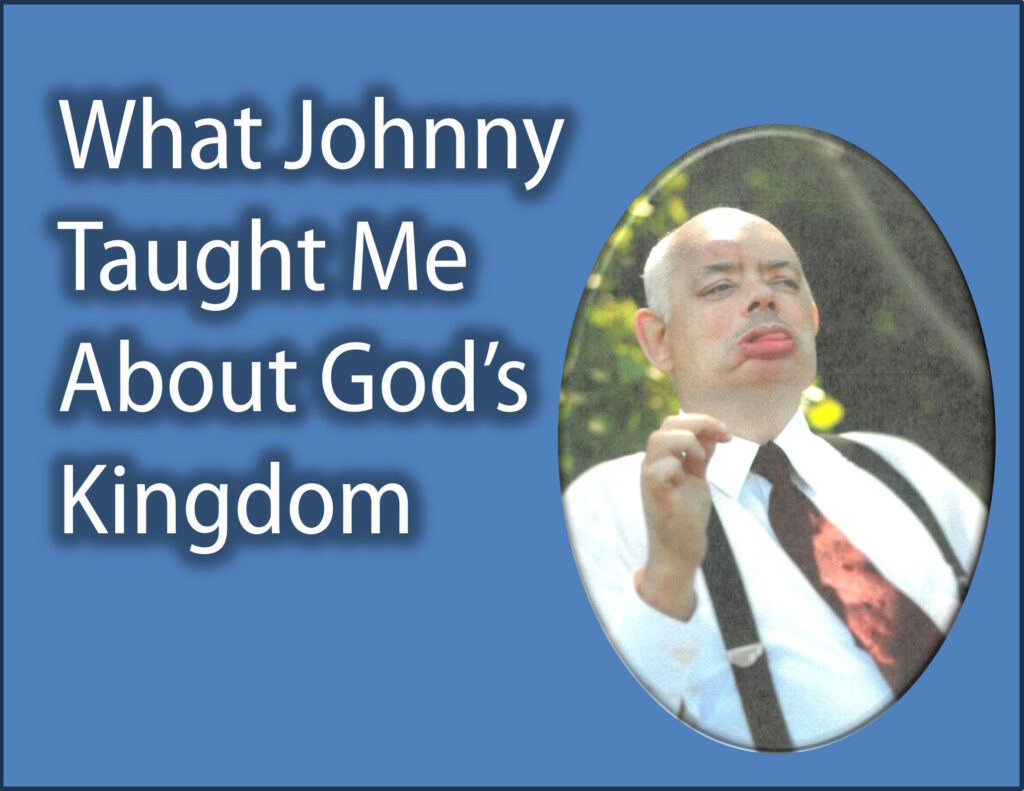Watch sermon video here:
Hespeler, October 12, 2025 © Scott McAndless – Thanksgiving Sunday
Jeremiah 29:1, 4-9, 24-32, Psalm 66:1-12, 2 Timothy 2:8-15, Luke 17:11-19
ur reading this morning from the Book of Jeremiah tells the story of something that happened a long, long time ago and in a place far, far away. Because of that, there are some elements in the story that are not going to be familiar to you. They might take a little bit of explaining.
Letters
For example, the people in this story are exchanging something that they call letters. You see, once upon a time, when people wanted to communicate with others who were a long way away, they would take a sheet of parchment, an animal skin scraped smooth, and they would take something called a pen. It worked kind of like when you take a stylus and use it to write on the screen of some kind of portable computer, except this thing called ink came out of the end of the pen and made markings directly on the parchment.
And so, you would write with your hand what you wanted to say to those other people instead of typing it. Then you would roll up this letter and give it to a messenger or put it into something that used to be called the Post Office, and which apparently has now disappeared forever. And that messenger would take it to the other person, they would read it and then write their response to you on another piece of parchment.
And so, you could have a conversation with people who were far, far away. Except of course, this could take a long time. Sometimes it could take a whole day for a letter to be delivered or, if it was a long way, it could take weeks or even months.
Why Didn’t They Text?
And I know what you are thinking. Well, why didn’t they just text instead? Why didn’t they use Zoom or Snapchat? Or, I don’t know, something antique like email? Well, that is just one of those mysteries about ancient times that perhaps we will never understand. For some reason I guess they just preferred these letters.
So, yes, there is a lot about this passage we read this morning that is strange to us. Also, of course, the fact that it is set at a moment when the Kingdom of Judah had been attacked, many people had been taken away to live in Babylon against their will, but Jerusalem was not yet destroyed and many people, including a prophet named Jeremiah, were still living there.
You may well be asking, therefore, what this strange passage has to do with us who live in a very different world with different ways of doing things. But I think it has a lot to do with us. So let me tell it to you in a way that you can relate to. Let me tell you the story of what was going on.
Jeremiah Sends a Group Text
Jeremiah the prophet was just hanging out one day in the Christian church of, let’s say, a decade ago. He was hanging out in the church that existed before the pandemic, before the mass retirement of huge amounts of our clergy that were not replaced by new students coming out of seminary.
And Jeremiah was wondering how the church was faring in that strange new world that was to come. He took out his phone and texted a few of the friends he had in the church of the future.

“Hey guys,” he texted, his fingers flying across the screen. “How are you all doing out there in Babylon? Having a good time?”
The Response
He didn’t have to wait long for a response. It was, more than anything, a litany of complaint. “Oh, you wouldn’t believe how bad it is. Everything is different out here. It is like the world has changed so much and so quickly. It is like they speak a completely different language. They stare at us blankly when we talk about chancels and litanies and Christology. They have completely different styles of music. No one seems to think that our ways of doing things are relevant to anything.
“We are miserable. And the only thing that keeps us going is the knowledge that this is all short-term. There is a prophet among us here named Shemaiah. He has told us that soon God will let us out of this strange place. Soon things will go back to the way they used to be and then everything will be alright.”
When Jeremiah received the text, he frowned. He didn’t know who this Shemaiah was, but he had to be wrong. He took his phone and sent back an immediate group text to everyone he had a number for in Babylon.
Response to Shemaiah
“Thus says the Lord of hosts, the God of Israel, to all of those whom I have sent into exile from Jerusalem to Babylon:Build houses and live in them; plant gardens and eat what they produce. Take wives and have sons and daughters; take wives for your sons, and give your daughters in marriage, that they may bear sons and daughters; multiply there, and do not decrease.
“You need to build up your family and your fellowship in the strange place where you find yourself because there is no going back. You need to find ways to thrive where you are because that is where God has put you. But more important than that, remember that God has something for you to do in that strange place.
Seek the Welfare of the City
“You must seek the welfare of the city where I have sent you into exile, and pray to the Lord on its behalf, for in its welfare you will find your welfare.
“I know that you might be tempted to hate everything about the city where you find yourself. They might seem hostile to you and the ways you like to do things. They might have strange ways of doing things that you don’t like. But never forget that God has put you there because God has something for you to do there. And God hasn’t sent you there to judge them or condemn them. God hasn’t sent you to merely survive there in misery. Your job is to make sure that your presence there is a blessing to them. So, get busy figuring out how you can be that.
Don’t Listen to Their Dreams
“For thus says the Lord of hosts, the God of Israel: Do not let the prophets and the diviners who are among you deceive you, and do not listen to your dreams that you dream, for it is a lie that they are prophesying to you in my name; I did not send them, says the Lord.
“There will always be those among you who tell you to just give up and dream about how things used to be. They will tell you that you don’t need to be a blessing because it is just too hard and will encourage you to be bitter and blame everyone else. You need to not listen to them.
“And you yourself will be tempted to dream of how things used to be, but do not let those dreams consume you.”
Shemiah’s Indirect Message
Jeremiah typed furiously until his thumbs were sore. And once he was done, he rather expected that his phone would blow up with responses. He hoped, of course, that people might react positively and thank him for giving them the word of the Lord. But he was equally prepared for angry responses and for people to tell him off.
What he wasn’t prepared for what he got, which was absolutely nothing. Nobody texted back to him at all. What he didn’t know was that, no sooner had he written, than somebody forwarded the group text to Shemaiah, the prophet who had promised the people that God would let things go back to the way things used to be.
Shemaiah was outraged that Jeremiah would say such things about him. He paused not a moment to reflect on whether Jeremiah might be right, and he was just caught up in nostalgia. No, he said to himself, it was Jeremiah who was wrong, not him.
Text to Zephaniah
But he didn’t do the mature thing. He didn’t write back to Jeremiah and talk it out. No, he decided to use his contacts back in the past to punish him. He took his phone and texted Zephaniah, who was in charge of the temple of the Lord in Jerusalem.
“The Lord himself has made you priest instead of some other guy. And we all know that the whole point of having a religion is to make sure than nothing ever really changes. Your job is to make sure that anyone who even upsets people by suggesting that things need to change gets shut down.
“So now why have you not rebuked Jeremiah of Anathoth, who plays the prophet for you? For he has actually sent to us in Babylon, saying, ‘Things aren’t going to change back; build houses and live in them, and plant gardens and eat what they produce.’”
Forwarded to Jeremiah
Well, when Zephaniah the priest received that text, he didn’t much appreciate being told what to do by the likes of Shemaiah. So, he just forwarded it directly to Jeremiah. And when he got it, he had his phone out in a moment and was firing off another group text to everyone in Babylon.
“Thus says the Lord concerning Shemaiah of Nehelam: Because Shemaiah has prophesied to you, though I did not send him, and has led you to trust in a lie, therefore thus says the Lord: I am going to punish Shemaiah of Nehelam and his descendants; he shall not have anyone living among this people to see the good that I am going to do to my people, says the Lord, for he has spoken rebellion against the Lord.”
How We Handle Change
What am I trying to say here today? A lot of things may change in this world. Technology certainly changes – especially, in our times, the technology that we use to communicate. But one thing never changes at all and that is human nature.
We don’t handle change well. We resist it. When we find ourselves in a place where we live with it, we dream of everything going back to how it used to be. We become negative, defiant and obstinate because we don’t really want things to work where we are; we just want to go back.
That is what Jeremiah was dealing with in his communications with the exiles in Babylon. They were sabotaging their lives there, and he knew that there really was no going back for them.
Thanksgiving
Today is Thanksgiving. And I think that we all agree that thankfulness is a positive trait. We all appreciate it when people say thanks and when they are truly grateful for what we do for them.
But does thankfulness end once we have said thank you or have shown our gratitude in some other way? We often seem to assume that it does. But Thanksgiving is not a word, it is an attitude. And it is an attitude that is particularly needed when we find ourselves dealing with change that leaves us in a place that we don’t like.
A Different Attitude
If you just resist and dream of going back to what is familiar, you miss out on the opportunities that God has prepared for you in this strange place where God has placed you. But if you are truly thankful for what God has sent you or where God has put you, you will have a very different attitude.
And it is an attitude that will allow you to... “Build houses and live in them; plant gardens and eat what they produce.” A thankful heart allows you to invest in this new situation. You believe enough that you are willing to put some work and some risk into making it work.
It also allows you to... “Take wives and have sons and daughters; take wives for your sons, and give your daughters in marriage, that they may bear sons and daughters; multiply there, and do not decrease.” A thankful attitude means that you will look for opportunities for growth in that strange situation and you will be open to working with partners to create that growth.
Seek the Welfare of the City
But, more than anything, true thankfulness means that you can... “Seek the welfare of the city where I have sent you into exile, and pray to the Lord on its behalf, for in its welfare you will find your welfare.” It allows you to act with generosity towards the strange world where you find yourself and the kindness that you practice there will rebound to your own welfare.
So, on this Thanksgiving, can we practice true thankfulness and not just let it end once we have said thanks?





